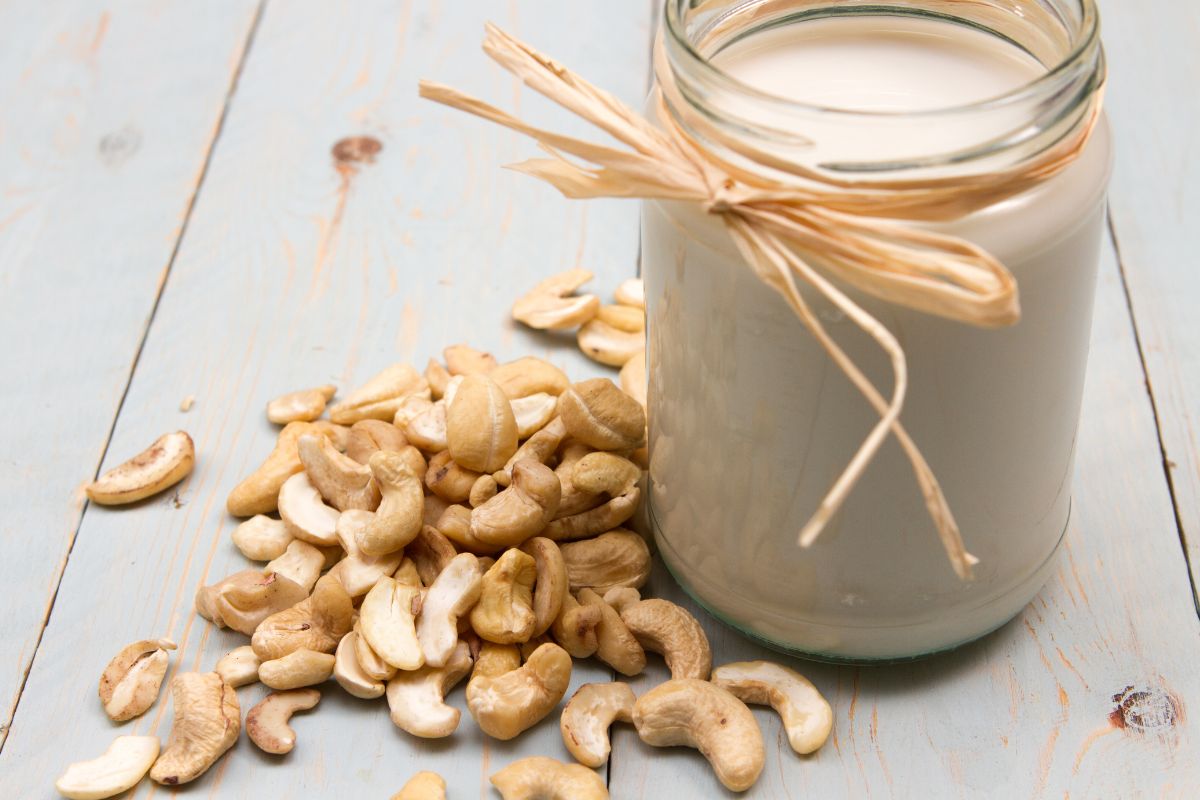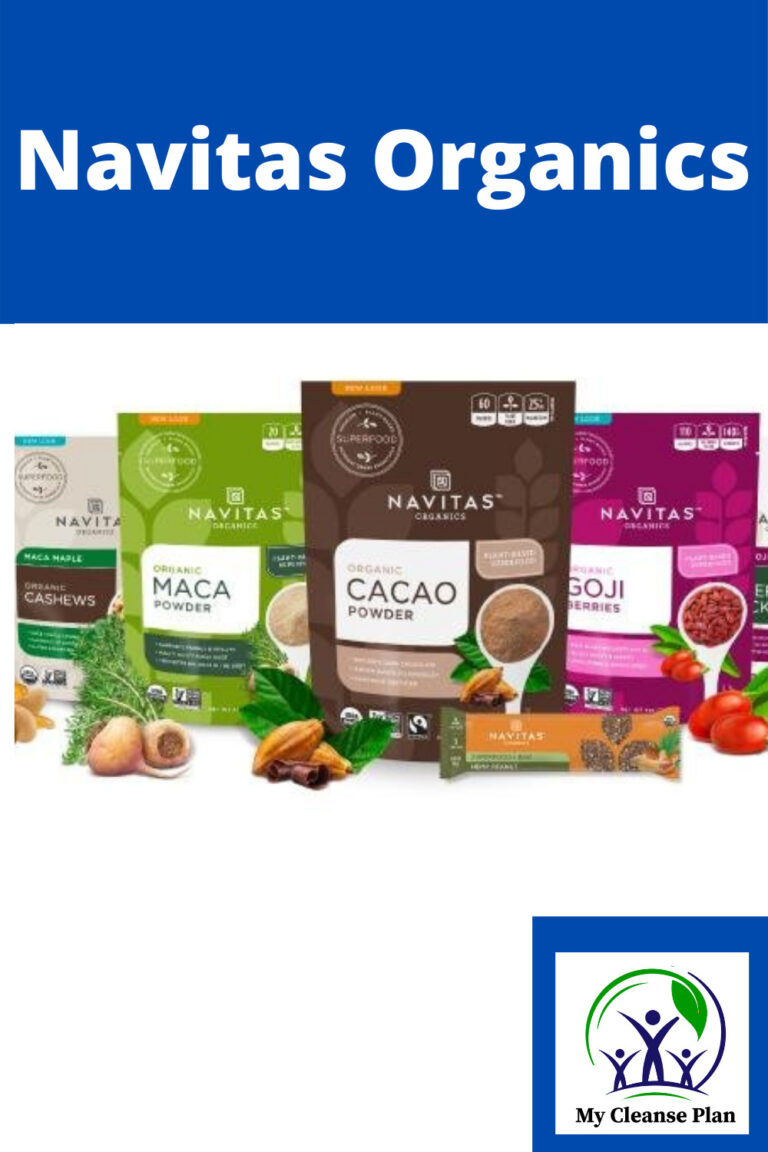10 Health Benefits Of Cashew Milk You May Not Know
Cashew milk is a well-known nondairy drink that is made from whole cashew nuts and water. Popular as an alternative to dairy it comes in sweetened and unsweetened variations.
Its rich consistency is full of vitamins and minerals, so we are going to look at the 10 nutrition and health benefits of cashew milk to see how it can benefit you.
Rich In Nutrients
Cashew milk is loaded with nutrients which include protein, healthy fats, minerals, and vitamins. The levels of nutrients will vary between commercially produced cashew milk and a homemade version.
Commercial cashew milk will be fortified with vitamins and minerals meaning there will usually be higher amounts of these nutrients in store-bought cashew milk. These include iron, calcium, and vitamins A, D, and E.
On the other hand, homemade cashew milk has higher levels of fiber and is packed full of magnesium which is vital for many body functions including blood pressure regulation.
Cashew milk is naturally lactose-free, so it makes a healthy alternative to cow’s milk for those who have a dairy allergy.
Boosts Heart Health
Studies have shown a link between cashew milk and a reduced risk of heart disease. One reason is that it is rich in monounsaturated and polyunsaturated fats which are much more beneficial for heart health than less healthy fats.
Cashew milk is rich in magnesium and potassium, both of which may boost heart health and help prevent heart disease.
Studies indicate that people who have a high intake of potassium reduce the risk of having a stroke by 24%.
Magnesium also helps to lower heart disease risk factors including high blood pressure and diabetes.
However, commercially produced cashew milk may be lower in unsaturated fats and other heart-healthy nutrients.
Good For Eye Health

Cashew milk contains antioxidants known as lutein and zeaxanthin which are thought to prevent cellular damage to eyes by free radicals, a type of unstable molecule.
A study showed that low levels of these antioxidants may be correlated with poor retinal health.
Consuming foods rich in these compounds may decrease the risk of age-related macular degeneration which can cause sight loss.
High levels of lutein and zeaxanthin have also been linked to a reduced risk of age-related cataracts, by up to 40%.
Vitamin E plays an important role in eye health and cashew milk has good levels of this nutrient.
May Help Blood Clotting
Vitamin K is very important for blood clotting and so a food such as a cashew milk which is rich in this vitamin will help with this vital bodily process.
A deficiency in vitamin K is rare, however, there are conditions which can result in malabsorption of this and other nutrients.
Someone with inflammatory bowel disease may have insufficient levels of vitamin K. Drinking cashew milk may help to maintain sufficient levels of this important nutrient.
However, increased dietary intake of vitamin K can interfere with any blood thinning medications. If you are taking a blood thinning medication you should consult your physician before including cashew milk in your diet.
Blood Sugar Control
A compound found in cashews called anacardic acid was found to stimulate the uptake of blood sugar in the muscle cells of rats.
Other research on a similar nut showed that extracts from its milk decreased blood sugar levels significantly in rats with type 2 diabetes.
In addition to these potentially helpful features of cashew milk, it is naturally lactose-free. This means that it has fewer carbohydrates than cow’s milk so for diabetics it may help with blood sugar control.
However, more research is needed to clarify any potential benefits of consuming cashew milk in managing diabetes.
Boosts Immune Health
As we have seen cashew milk contains antioxidants, it also contains zinc, and together these can help boost the immune system.
One of the effects of antioxidants is to reduce inflammation in the body and this helps to improve immunity.
Zinc can also help the body to produce immune cells whose job it is to fight diseases and infections.
Following research, it was noted that there was a correlation between low levels of zinc and the increased presence of C reactive protein, an inflammatory marker.
Good For Skin

Cashews are a good source of copper and so is the milk that is produced from them especially when it is homemade.
Copper is an important mineral for the creation of skin proteins and can play an important role in good skin health.
It helps to regulate the production of elastin and collagen, the two important proteins responsible for the strength and elasticity of the skin.
Low or inadequate levels of collagen can lead to skin aging while optimal levels promote good skin health.
Drinking cashew milk will add to your stores of copper which will in turn keep your skin healthy by boosting the body’s natural production of collagen.
Weight Management & Cholesterol
Cashew milk, particularly homemade versions, contains good amounts of fiber. This helps you to feel fuller for longer, so cashew milk can help with weight management.
It is also rich in a plant-based protein called L-arginine which helps to boost vascular circulation and reactivity.
Despite containing around 46% fat it is not thought that cashew milk contributes to weight gain.
Cashew milk also contains no cholesterol, unlike cow’s milk which in one serving may contain 36 milligrams of cholesterol which is equivalent to 11% of the daily recommended value.
This means if you are trying to reduce cholesterol you can drink cashew milk with no ill effects.
May Help Prevent Anemia
Anemia is a condition in which the blood does not have sufficient healthy red blood cells. These cells carry oxygen in the blood.
A primary cause of anemia is iron deficiency and symptoms include fatigue, cold hands and feet, dizziness, and shortness of breath.
While some people take supplements to ensure that they have enough iron others prefer to get their iron from their diet. It is present in red meat and green vegetables but also in cashew milk.
One 16-ounce serving of commercially prepared cashew milk provides almost 4 milligrams of iron or 20% of the daily recommended value.
Healthy Brain Function
The brain needs healthy fatty acids in order to function well.
Two of these fatty acids are known as PUFA and MUFA and a deficiency of them can lead to an increased risk of suffering from a host of mental disorders including anxiety and dementia.
Cashews are a rich source of plant-based fats and so drinking cashew milk can help the brain with healthy aging, cognitive function, and potentially the regulation of mood.
Explore Also:
Creativehouseblog
Dietsheriff
Gigasecurehome
Nutrients such as copper, zinc, and iron in cashew milk can also support brain processes.
Final Thoughts
Cashew milk is full of beneficial vitamins, minerals, antioxidants, and healthy plant-based fats. It’s hardly surprising then that it can offer so many health and nutrition benefits.
You can choose to either make it yourself at home or use store-bought.
We hope that this guide to the health and nutritional benefits of cashew milk has been helpful for you and that you have found it informative and interesting.







